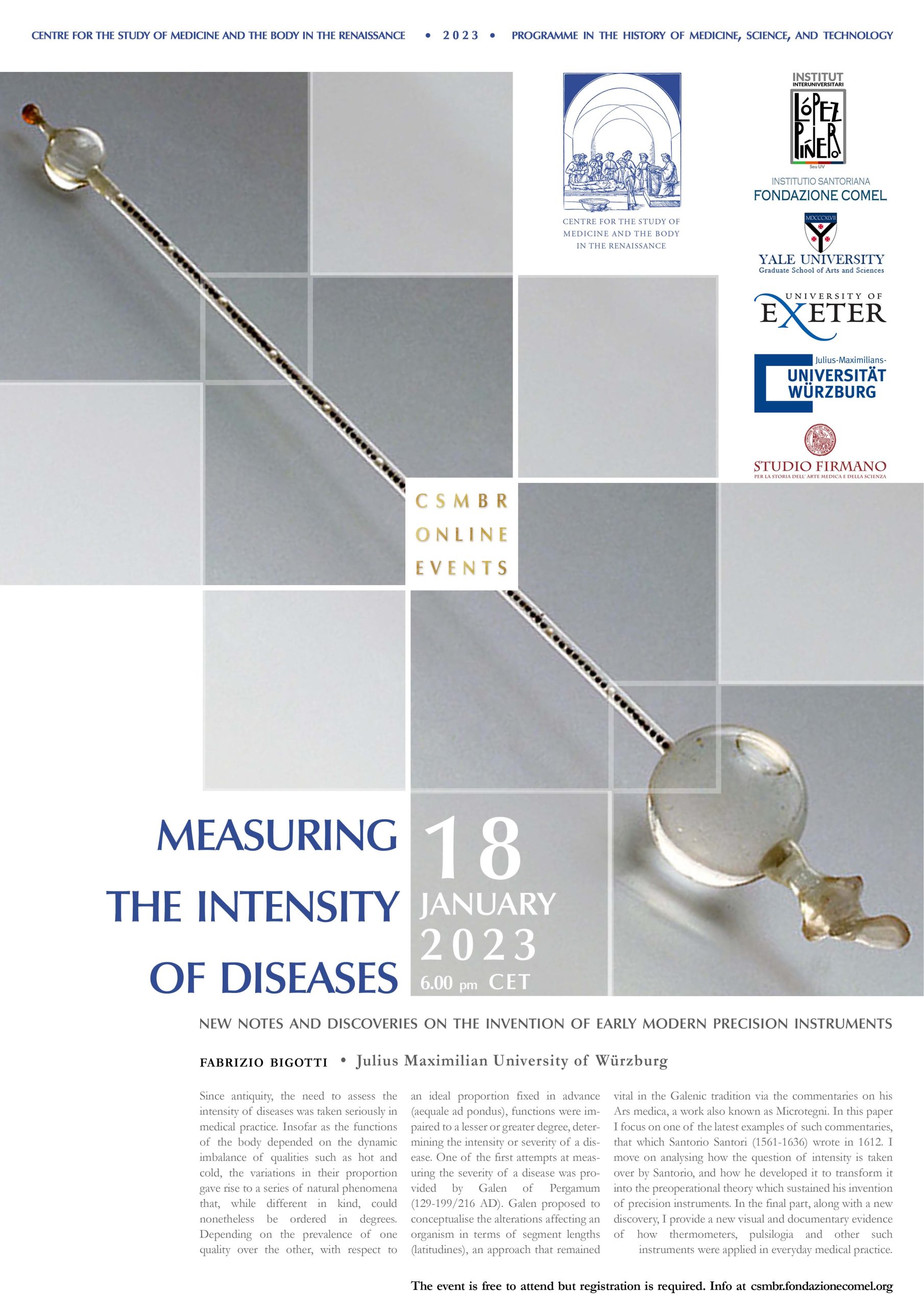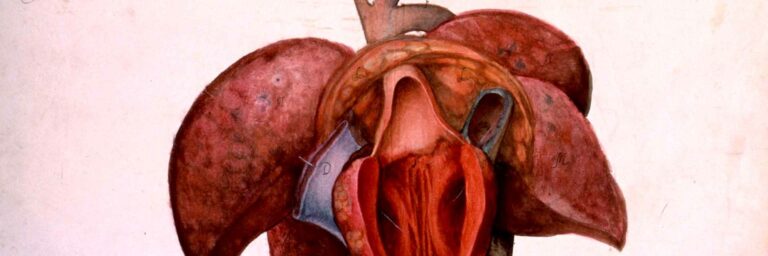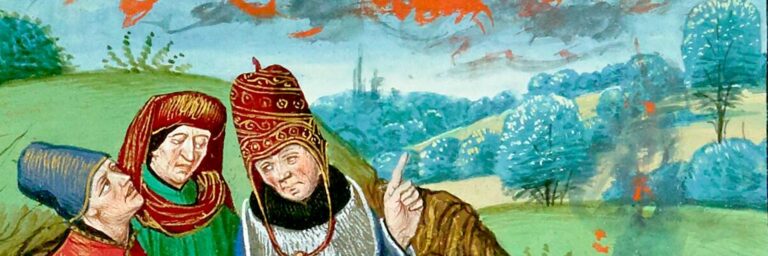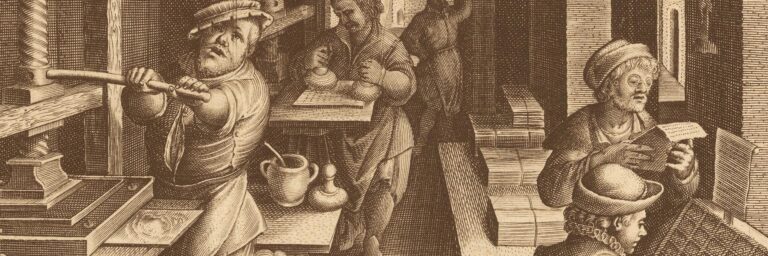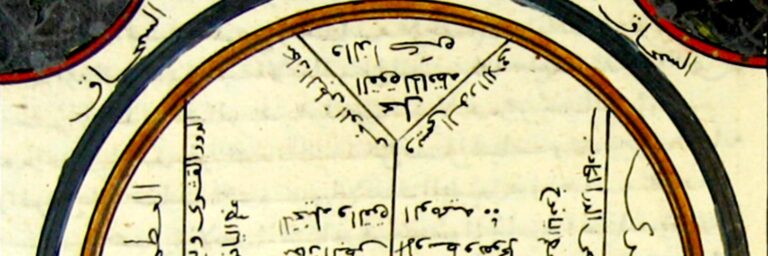Measuring the Intensity of Diseases
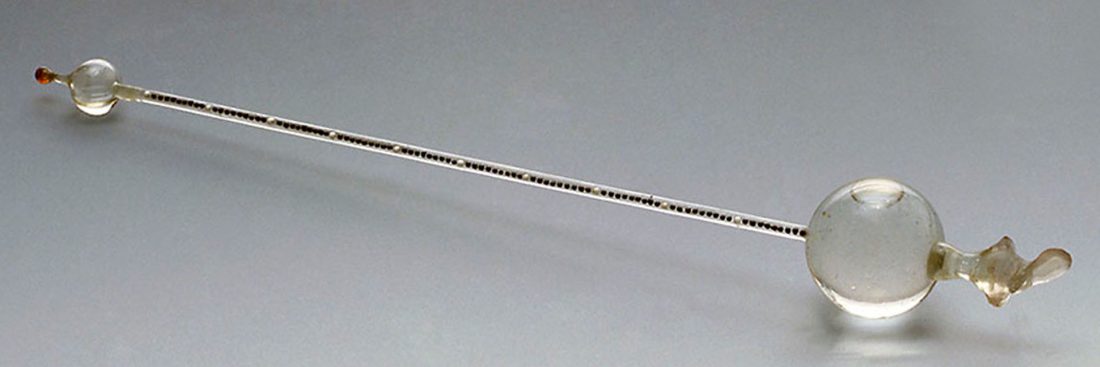
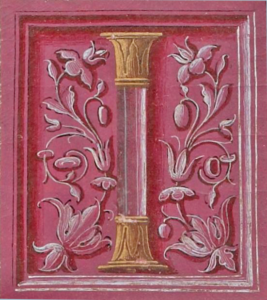
Measuring
the Intensity of Diseases
New notes and Discoveries
on the Invention of Early Modern
Precision Instruments
Fabrizio Bigotti
18 January 2023 – 6 PM (CET)
Since antiquity, the need to assess the intensity of diseases was taken seriously in medical practice. Insofar as the functions of the body depended on the dynamic imbalance of qualities such as hot and cold, the variations in their proportion gave rise to a series of natural phenomena that, while different in kind, could nonetheless be ordered in degrees.
Depending on the prevalence of one quality over the other, with respect to an ideal proportion fixed in advance (aequale ad pondus), functions were impaired to a lesser or greater degree, determining the intensity or severity of a disease. One of the first attempts at measuring the severity of a disease was provided by Galen of Pergamum (129-199/216 AD).
Galen proposed to conceptualise the alterations affecting an organism in terms of segment lengths (latitudines), an approach that remained vital in the Galenic tradition via the commentaries on his Ars medica, a work also known as Microtegni.
In this lecture, I focus on one of the latest examples of such commentaries, written by Santorio Santori (1561-1636) in 1612. I then move on to analyse how the question of intensity is taken over by Santorio, and how he developed and transform it into the preoperational theory which sustained his invention of precision instruments.
In the final part, along with a new discovery, I provide new visual and documentary evidence of how thermometers, pulsilogia and other such instruments were applied in everyday medical practice.
In collaboration with:
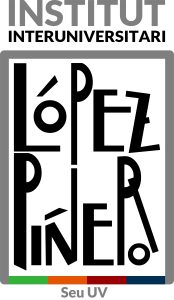
About the Speaker ...
Fabrizio Bigotti is an intellectual historian with a specialisation in the history of medicine, science and technology in the late medieval and early modern period (1300-1700).
He has published extensively, in English and Italian, on the emergence of quantification in science and medicine, as well as on medieval and early modern natural philosophy. As well as holding an honorary fellowship at the University of Exeter, he is currently a Senior Research Fellow at the Institut für Geschichte der Medizin, Julius-Maximilians-Universität Würzburg working as Principal Investigator (Eigene Stelle) on the Project “Measuring the World by Degrees. Intensity in Early Modern Medicine and Natural Philosophy (1400-1650)” funded by the German Research Foundation (DFG – Project no: 461231785).



